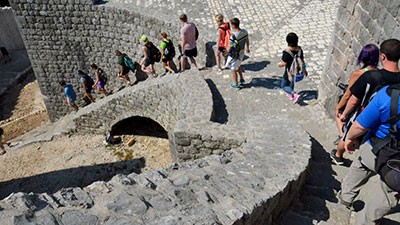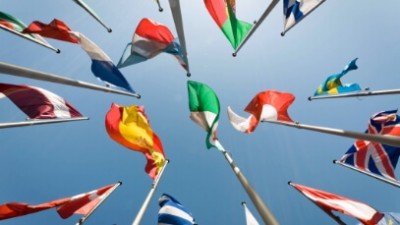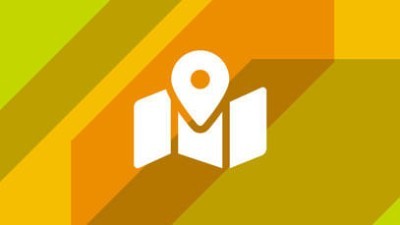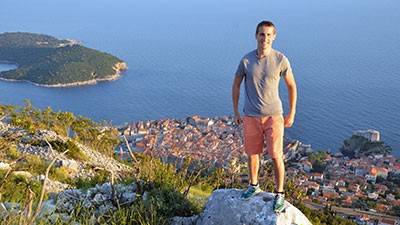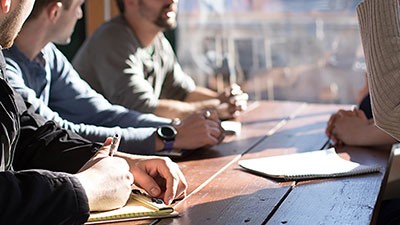Living in Kosovo
- RIT/
- RIT Study Abroad/
- Get Started/
- Study Abroad at an RIT Global Campus/
- Study Abroad at RIT Kosovo/
- Living in Kosovo
Housing
The Velania Guest House is 10 minutes from the RIT Kosovo campus. Public transportation is available every 10 minutes, taking you to the Germia National Park, RIT Kosovo Campus, or the city center of Pristina.
RIT Kosovo also offers on-campus housing for female students only. The student dormitory at RIT Kosovo is comprised of eight apartments. Each apartment has two rooms, a shared living room, a sleeping area (2 to 3 beds), a kitchen, and a bathroom. The dormitory has security cameras, fire alarms, and 24-hour campus safety personnel.
Food and Dining
Pristina is the place to be if you are a student, with endless things to see and do! Eating out in Pristina offers variety and excellent food at affordable prices, with main courses most often being under 10 Euros. Options include salads and fresh vegetables, delicious traditional foods such as "the Balkan Burger" - Qebapa, "Elbasan Tavë" or "Burek", "lashing of lamb", fabulous white cheese, excellent Turkish food, pizza, and much more.
Excursions
Students can expect excellent support from faculty, staff, and students at RIT Kosovo throughout their experience.
Your study abroad experience will be further enhanced by day trips and some overnight excursions. Students can experience the countryside of Kosovo by traveling to Prizren and Peja. Prizren is known for its unique beauty and preserved architecture that reflects the country’s historic past. Peja is considered the best tourist destination in the country, with the natural beauty of the surrounding mountains, historical monuments, and the many craftsman shops in old Charshia.
Other trips may also be organized to neighboring countries like Albania, Montenegro, and Macedonia.
Things to do Around Town
Ethnographic Museum (Muzeu Etnologjik, Emin Gjiku complex): The only original building left in the old bazaar area is a lovely traditional 18th-century house set in a walled complex with several other buildings. Once owned by Emin Gjiku, a nickname for Emin Gjinolli, whose family owned the house, the complex was turned into a museum in 2006. Professional guides give English-language tours of the traditional architecture typical for the region.
Kosovo Museum: This pretty ochre-painted villa housing the Kosovo Museum was built by Austrians for the Turkish army in 1898 and was used by the Yugoslav National Army until 1975. The extensive permanent archaeology exhibition details life in the region in the Illyrian, Dardanian, and Roman periods with excellent English-language texts, all accompanied by minimal Philip Glass music.
Kosova Art Gallery: Behind the national library, this relatively large exhibition building comprises two halls covering almost 500 square meters and showcasing shows of mostly 2D work by local and primarily young artists.
National Theatre: Founded in 1946 in Prizren, the birthplace of all cultural things Albanian, the National Theatre puts on Albanian-language plays and shows.
Bazaar: Pristina's liveliest area is undoubtedly the large bazaar east of Ilir Konusheci Street. Although most of it was destroyed in the 1950s, it retains the bustling atmosphere typical of all Balkan markets. All kinds of goods are for sale: fruit, vegetables, Albanian flags, kitchen utensils, car parts, and more, making for a fascinating stroll.
Student Life
RIT Kosovo offers a variety of student clubs, volunteer activities, and sports activities that help students have fun and become involved outside the classroom.
Students will also enjoy time with their peers through activities such as community service, guest lecturers, and other university events. Pristina also offers a vibrant youth culture, exquisite cuisine, concerts, museums, sightseeing, music clubs, and local community experience.
Friday Forum lectures enable students to debate and discuss the important issues that concern the European and Kosovar societies. The lectures will be especially interesting to those students who wish to expand their knowledge of international diplomacy, economics, and foreign policy.
Local Culture
Locals in your host country will likely be understanding and will not take offense at social blunders, provided they arise from ignorance rather than malice. However, you will be far more comfortable and welcome if you acquaint yourself with local ways of doing things. It’s important to remember that as a guest in your host country, you must adapt to the customs and social behavior of the region – not the other way around.
Socializing/Relationships
- Kosovo is a very young country with many young people out and about and inexpensive activities year-round, including dance clubs, concerts (both popular and classical), film festivals, coffee and tea festivals, and outdoor excursions, especially hiking and skiing.
- Athletic activities are growing in popularity, though these activities tend to be practiced in specifically designated areas and parks. Very few local people run or jog on the street.
- When you enter a private home, you are always expected to take off your shoes at the entrance (you may be offered a pair of slippers).
- It is customary to bring a small gift (ex. chocolates) when visiting a private home for the first time.
- In traditional Albanian culture, when you visit someone’s home, you, as the guest, may be given a small gift as you leave (chocolate or sweets). It is considered rude to refuse such a gift.
- When you visit a home, you will always be offered at least coffee, tea, and very often food. It is considered rude not to drink or eat a little bit.
- Smoking is prohibited in most public places. If you are a smoker, please check the signs or ask someone before you smoke.
- Blowing your nose or sneezing loudly in public is considered extremely rude, especially in a restaurant or dinner table. It’s best to leave the room to blow your nose.
- Locals are friendly with visitors and will go out of their way to help you.
- Support from the U.S. and Great Britain in the liberation of the Albanian population during the war was regarded as the most successful example of Western intervention in recent history. This means Americans and Brits are welcomed with open-armed gratitude, and you may be thanked personally.
Dining/Meals
- Breakfast is similar to that in the United States. Lunch is typically the main meal, and dinner is smaller than an American dinner.
- Kosovo enjoys a robust coffee culture, in which it is common to spend hours at a café drinking coffee. Macchiatos (little lattes) are the most common and tasty coffee option.
- Your local hosts may offer you an alcoholic beverage of raki; however, remember that it can be pretty strong, so sip slowly.
- Be aware that some places in Kosovo may only accept cash, particularly in cafes, bars, and small restaurants.
- Many cafes offer inexpensive “continental” cuisine (pasta, pizza, grill items) and fast food options.
- At sit-down restaurants with a server, tipping is not expected. 5%-10% on your bill is typical. There is no rule that you have to top, but it is considered good etiquette if you do. If you pay with a credit card, leave the tip in cash.
- Although Kosovo's majority are Muslims, most citizens do drink alcohol.
Safety
- Kosovo is safe for travelers, but street crime and petty theft are generally low. The U.S. Embassy advises all U.S. citizens to take the same security precautions in Kosovo that one would practice in the U.S. or any large city abroad.
- If you tend to venture off the beaten path, beware of unexploded minefields that are left over from the war, particularly in inland or remote areas. Most land mines are now well-known and marked by signs, fencing, or red paint. It is important to stay away from marked mine areas, and it is best to keep on well-marked paths when running, walking, or exploring.
Religion
- Kosovo has no official religion, although the country is about 90% Muslim, with the remaining population being Serb Orthodox or Albanian Catholic. Kosovo is tolerant of different faiths.
- As a Muslim-dominated country, fasting may be observed during Ramadan, so it is important to be respectful when it comes to eating in front of those observing the fast.
Dress/Clothing
- Dress in Kosovo is informal.
- When visiting mosques or monasteries in Kosovo, you should dress more modestly in long pants or below-the-knee skirts (instead of shorts) and shirts or T-shirts that cover your shoulders (instead of tank tops/sleeveless shirts). Women may be asked to wear something to cover the head.
Meeting and Greeting
- Kosovars shake hands when meeting for the first time, and when leaving and greeting people they already know.
- Close friends and relatives, men and women, also exchange kisses.
- As a sign of respect or happiness at seeing a person, men sometimes place their left hand on their heart and bow forward a little while shaking their hand.
- Kosovars may also hold onto your hand while asking you how you are or where you are from.
- When greeting friends and colleagues, it is customary to ask how they are doing but also about the well-being of their family members.
Gestures
- Sometimes, Albanians simultaneously rock their heads, click their tongues, and wag their forefingers.
- In some areas, especially more rural areas, people, especially children, will touch their noses when they say something good about someone. This is intended to avert any “bad luck.” It is similar to the expression “knock on wood.”
- Placing the left hand over the chest and moving the head slightly shows appreciation.
- Showing both hands with open fingers and palms up means “our conversation is over.”
- Unlike some places in the U.S., smiling and saying hello to strangers on the street is not a common practice.
Topics to Avoid
- Discussing inter-ethnic issues related to Serbian and Albanian nationalities are sensitive topics and might be better to avoid.
- Do not refer to Kosovo as Yugoslavia or to an Albanian/Kosovar as ‘Yugoslavian.’
- Discussing national politics with Kosovars can be sensitive because of widespread nationalistic views. Discussing other ethnicities of Yugoslavia, as well as religious issues in casual conversation, are considered taboo.
History
After the dissolution of Yugoslavia in 1991, countries such as Bosnia and Herzegovina, Montenegro, and Croatia gained independence. However, the southern Serbian region of Kosovo remained part of Serbia. The Kosovo Liberation Army fought Serbian forces, and a war of independence occurred between 1998 and 1999. In June of 1999, a NATO peacekeeping effort gave Kosovo some autonomy over Serbia. However, Kosovo’s desire for full independence grew. On February 17, 2008, Kosovo unanimously voted to declare independence from Serbia. Although the United States and most members of the European Union (EU) recognized Kosovo’s independence, Serbia, Russia, and a few other countries did not. As of 2020, 104 United Nations member states have recognized Kosovo as a sovereign state, including 22 countries of the European Union, as well as the U.S. Today, Kosovo has emerged as Europe’s newest democracy and is known as the country of “Young Europeans” with 70% of the population being under the age of 35.
Weather
Kosovo has a continental climate, with hot summers and cold winters. During May, June, July, and September, you will experience good weather with pleasant average temperatures. Late fall can be rainy, and the coolest month is typically January. Occasional snow can fall in late fall, winter, and early spring.
- Winter average temperature: 34 degrees F
- Summer average temperature: 73 degrees F
